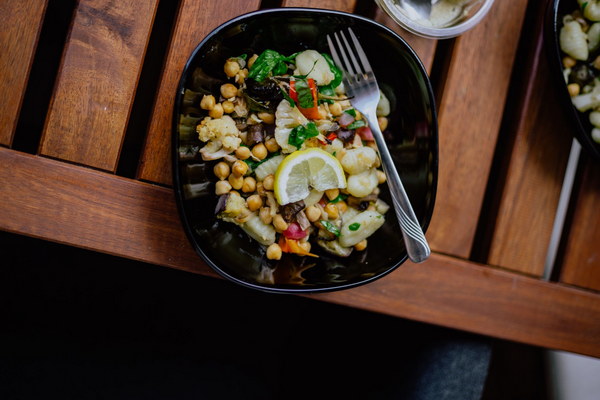Is Traditional Chinese Medicine's Herbal Cuisine a Viable Option for Health and Wellness
Introduction:
Traditional Chinese Medicine (TCM) has been practiced for thousands of years and is known for its holistic approach to health. One of the key components of TCM is herbal cuisine, which involves incorporating medicinal herbs into everyday meals. But is herbal cuisine a viable option for achieving health and wellness? Let's delve into the benefits and considerations of incorporating herbal cuisine into your diet.
Benefits of Herbal Cuisine:
1. Nutritional Balance:
Herbal cuisine emphasizes the use of fresh, organic ingredients, which ensures a balanced intake of essential nutrients. The combination of herbs and spices not only enhances the flavor but also provides a wide range of health benefits.

2. Holistic Approach:
TCM views the body as a whole, and herbal cuisine aligns with this holistic approach. It aims to treat the root cause of illness rather than just the symptoms. By incorporating medicinal herbs into your meals, you can promote overall health and prevent disease.
3. Disease Prevention:
Many herbs used in herbal cuisine have been shown to have medicinal properties that can help prevent and treat various diseases. For example, ginger is known for its anti-inflammatory properties, while turmeric has been linked to reducing the risk of cancer.
4. Improved Digestion:
Herbal cuisine often includes ingredients that aid in digestion, such as ginger, garlic, and fennel. These herbs can help improve gut health and prevent digestive issues like bloating and constipation.
5. Immune System Support:
Herbs like echinacea and garlic are known for their immune-boosting properties. Incorporating these herbs into your diet can help strengthen your immune system and protect against infections.
Considerations for Herbal Cuisine:
1. Consult a Healthcare Professional:
Before starting a herbal cuisine regimen, it's essential to consult with a healthcare professional, such as a TCM practitioner or a nutritionist. They can provide personalized advice on which herbs are suitable for your specific health needs and potential interactions with any medications you may be taking.
2. Quality of Herbs:
The effectiveness of herbal cuisine depends on the quality of the herbs used. It's crucial to source organic, high-quality herbs from reliable suppliers to ensure you're getting the intended health benefits.
3. Individual Reactions:
While herbal cuisine offers numerous benefits, it's essential to be aware that some individuals may have adverse reactions to certain herbs. It's important to listen to your body and consult a healthcare professional if you experience any negative symptoms.
4. Time and Effort:
Incorporating herbal cuisine into your diet requires time and effort. It may take some trial and error to find the right combinations of herbs that suit your taste and health goals. However, the long-term benefits can be worth the investment.
Conclusion:
Herbal cuisine is a viable option for achieving health and wellness, as it offers numerous benefits and aligns with the holistic approach of Traditional Chinese Medicine. By incorporating fresh, high-quality herbs into your meals, you can promote overall health, prevent disease, and improve your quality of life. However, it's crucial to consult with a healthcare professional and be mindful of individual reactions and the quality of the herbs used. With proper guidance and dedication, herbal cuisine can be a valuable addition to your health and wellness journey.









